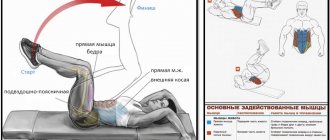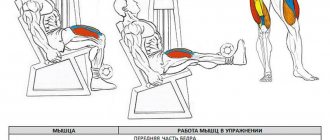In the first months of losing weight or training, the result is most noticeable: water leaves the body, relief appears and the body becomes slimmer. Only after a certain time does stagnation occur. It seems like you’re eating right and exercising regularly. Still no progress.
This is called the Plato effect. It is observed during weight loss and weight gain.
Why does the Plateau effect occur?
As already mentioned, the Plateau effect occurs due to the body’s adaptation to changing conditions. The reasons may be the following:
- Water retention (rapid weight loss) . The fact is that with diets and training, not only fat is lost, but also other biological components: muscles and tissues. Fluid stagnation is formed due to the abundance of salty foods and strong physical activity.
- Lack of fats in the diet . False statement: “To lose fat, you need to eat less.” This is not true, fat is necessary for the normal functioning of organs. If you severely limit this component, then instead of losing weight there will be stagnation.
- Too strict diet . You should not rely on mono-diets or diets with too strict restrictions. Why? Because with an ultra-low calorie content, metabolism and the functioning of internal organs will slow down - this is bad for health. Adaptation of the body will lead to the Plateau effect, and physiological problems will also appear.
- Genetics and the wrong training program. Both reasons relate to the power Plateau. In the first case, you have trained to the limit of your genetic capabilities. And in the second case, it is necessary to adjust the training complex.
What are the types of Plateau effect?
- Classic and Strength Plateau - Causes: genetics or incorrect training program.
- Dietary Plateau - Causes: adaptation of the body to the type of diet.
- Energy Plateau - Causes: addiction to physical activity.
- Hormonal Plateau - Causes: individual characteristics of the body.
What is the plateau effect and what are the reasons for its occurrence?
The plateau effect is a temporary stop in weight loss. The first time it occurs 3-4 weeks after starting the diet, but it can recur if the process of losing weight lasts for several months. The reasons for the plateau are physiological:
- Decreased metabolic rate.
When switching to a low-calorie and monotonous diet, the body first begins to burn fat reserves, but soon a limited and tasteless menu causes the opposite effect - the brain receives a signal about a lack of food. It slows down the metabolism in an effort to store fat reserves for a rainy day, and weight loss is suspended.
- Hormonal disorders.
If following all the rules of nutrition in combination with physical activity does not give the desired effect, it is time to visit a doctor. The reason may lie in various diseases: thyroid dysfunction, insulin resistance, incipient diabetes. A consultation with a doctor will help identify pathology and adjust your lifestyle and diet.
- Own mistakes.
If no health problems are identified, but the dietary plateau is prolonged, you need to analyze the nutritional system. The main mistakes of those losing weight are:
- The calorie content of the food is too low . After some time, a meager diet will force the body to create fat reserves literally from a lettuce leaf. At the same time, your general health deteriorates greatly, and the process of losing weight is sharply slowed down.
- Imbalance of proteins, fats and carbohydrates and, as a result, metabolic disorders.
- Improper drinking regime . To successfully lose weight, you need to drink at least 1.5–2 liters of clean water per day. If you are dehydrated, your rate of weight loss will slow down.
- The presence in the diet of a large amount of transgenic and cheap vegetable fats . They disrupt lipid metabolism and lead to weight gain. Most of them are in cheap sausages, frankfurters, and store-bought desserts.
- Inaccurate calculation of caloric content of dishes . When preparing dishes, hidden calories and periodic snacks are not taken into account; the calculation is made conditionally.
If you start to plateau, you just need to continue to stick to your chosen diet, don’t change your diet and don’t try to limit yourself even more
If the plateau has been prolonged and the weight has remained at the same level for 3-4 weeks, you need to take action. Let's start with what not to do:
- Urgently change your diet or nutrition system in the hope that “this will definitely help.”
- If you sharply reduce your caloric intake or starve, your body will perceive the new regime as a deterioration in your standard of living and will further reduce your metabolism.
- Panic and let the process take its course.
Most often, a dietary plateau is necessary for the body to stabilize weight. During this time, the body gets used to the new state, the metabolism becomes suitable for the new weight. Don't worry and stick to your diet.
Why the weight loss process stopped during the diet: reasons
That's how it should be! The whole point is that in this situation you are giving an incorrect assessment of the current phenomenon. Most likely, before you started losing weight, you didn’t deny yourself anything, ate sweets, starchy foods, etc.
Increasing activity - due to movement in everyday life; Zig zag - periodic dietary relief.
If, when losing weight, you switched to a well-trained, canonically “correct” healthy diet, and even from a large weight, you can easily lose as much as 5-6 kg. in a couple of weeks. But it won’t continue like this - this is a one-time event.
This whole cool effect appears only by switching to a different diet. This is a one-time effect, it is better to forget about it and focus on weight loss, which goes further. Then it turns out that in a month without these 2 weeks you will lose about 3 kg. And this is the ideal rate of weight loss. There is no trace of a plateau effect when losing weight!
To better understand, we suggest you read our article about edema . People greatly underestimate the fact that the body retains water - obese people have very severe edema.
Not only because of the food that contributes to this, but also because of physical inactivity (lack of movement). Why does weight come off easily after intense exercise? Because you are sweating.
Many people, just starting a diet, think that the body so quickly begins to get rid of “toxins” and fat, but this is nothing more than liquid and substances diluted in it. During the process of losing weight, they leave the body, contributing to the long-awaited weight loss.
However, sometimes this does not help - studies show that most people today are not susceptible to the accumulation of excess weight, but to swelling. They go on diets, subject themselves to physical activity, but all to no avail. Even if they starve, they still won’t be able to lose weight.
A similar effect occurs due to an imbalance of water and salts in the space between the cells. This “excess weight” will never go away due to low-carbohydrate diets or physical activity. And even if he leaves, he will quickly return again.
If you easily gain several kilograms after a feast, then this is a bad sign, indicating an imbalance of salt and water. You definitely need to go to the doctor and check your sugar levels, heart, kidneys and vascular function - swelling is often caused by really dangerous diseases, so don’t waste your time!
But there are other reasons for stagnation in weight loss, which are absolutely physiological and normal. Imagine, the body loses a significant amount of weight (now we are talking about fat, not water) in a relatively short period of time (calculate how long it took you to gain this weight and how quickly you want to get rid of it).
Now the body must “take inventory” and understand the current, new situation. Figuratively speaking, imagine that you have taken out a closet, a sofa and a bedside table from a room full of furniture. What will you do immediately after this? That's right - the rest will need to be moved.
This is especially true for very overweight people, who with a 99.9% probability have visceral obesity. In such cases, the internal organs are on a “cushion of fat,” for example, the kidneys. And if you lose weight quickly, organ prolapse is possible.
Sudden weight loss is fraught with kidney prolapse; scientifically this is called nephroptosis. In a trained person, the kidneys are held in place by specially designed ligaments, etc. But when a person gets fat, they begin to be replaced by a “stand” of fat. The ligaments cease to perform their functions and weaken.
In case of sudden weight loss, there is nothing to support the kidneys - there is no more fat, and the ligaments have not yet become stronger. The kidney descends and rises, depending on the position of the body. Problems arise, ranging from minor to very serious. Women suffer from nephroptosis much more often than men; the right kidney is larger than the left.
So a plateau when losing weight is quite normal and even useful - give your body time and it will thank you.
So plateauing is actually okay - it doesn't mean your weight loss is wrong or useless. As we said above, losing weight is not a linear process. This is sometimes a rather long descent along steps, and the plateau is one of them.
The greater the weight, the more likely it is to plateau - there will be several plateaus on the way to the goal, and each new one will likely be longer than the previous one.
Plateaus are usually discussed in a negative light, but this is a good thing because the ultimate goal of any weight loss is a long, lifelong plateau at your new weight. So intermediate plateaus are an opportunity to test your ability to maintain weight.
Plateaus are inevitable and normal. Instead of immediately looking for strategies on how to “break through” it, you can go from the opposite and treat it as consolidating the achieved result, albeit an intermediate one.
Let's discuss how to get out of this situation and defeat your extra pounds?
What to do to overcome the plateau
Start by analyzing the reasons for the plateau. First of all, you should visit a doctor and rule out possible diseases. If the weight has risen due to your own mistakes, use any of these methods:
- Food diary.
It will help you keep track of your balanced diet. In addition to caloric content, we consider BZHU - normally, proteins should account for 30–35% of the diet, fats – 15–20%. The remaining 45–55% are carbohydrates, preferably complex ones.
- Fasting days.
One or two days a week we do unloading. Proteins (kefir, cottage cheese, chicken) can remove excess water from the body. Fruit and vegetable fasting will help cleanse the intestines well. Physical activity during such periods should be reduced.
- Reducing the amount of carbohydrates.
We review our diet in favor of proteins and fats, and reduce the amount of carbohydrates by at least half. The effect will be quick and visible, because they retain excess water in the body and cause swelling. Having overcome the plateau, you can gradually return to the usual balance of BJU.
- Cascade fasting.
Its principle is to observe the “food window”. Food can be taken only during a certain period of the day, the rest of the time - low-calorie drinks (water, tea, coffee). The usual options are 8/16 or 6/18 hours.
- Calorie Zigzag.
To prevent metabolism from slowing down, we adhere to the zigzag rule. We calculate your weekly caloric intake and distribute it so that you get a different amount of calories every day.
- Cheat meal.
We allow ourselves one unhealthy meal per week. It will help relieve psychological stress and calmly overcome the dietary plateau without breakdowns.
- Physical activity.
We add power loads, increase the intensity of exercises or their number. Circular or interval training will help you overcome plateaus. We try to move more during working hours and at home.
If you start to plateau, try not to weigh yourself every day - this will make you more nervous. Once a week is enough to control weight
Plateau in geography
Flat and elevated areas of the earth's surface were formed in different ways. Some were formed by long-term erosion of mountains, others were once sections of the seabed that were then uplifted.
- The Deccan Plateau, for example, was formed from volcanic lava.
- The plateau in Utah, located at an altitude of 1300 - 1400 m above sea level, was before Ancient Lake Bonneville.
- In the central Andes there are two large plateaus, the length of which exceeds 1800 km, they were formed by thickening of the earth's crust, they are called Puno and Altiplano.
- The coldest place on Earth is the Polar Plateau - land around the South Pole, 3000 km above sea level.
Switch to proper nutrition with Grow Food
Fashionable diets are always built on strict restrictions and do not provide long-term effects. A proper nutrition system not only helps you overcome a plateau, but also improves your health and figure.
All menus from Grow Food are designed to meet the daily caloric needs of people with different lifestyles and different goals. The energy value of diets varies from 800 to 2500 kcal.
If you are already using one of the Grow Food lines and your weight loss process has stopped, simply change your diet - choose a different plan with lower calorie content. This will help you overcome your dietary plateau without any extra effort.
How to stay motivated during a plateau?
First, it is important to understand that:
- Weight loss plateaus are normal
and often occur while developing healthy habits. - This is not necessarily your fault or lack of diligence. Stop measuring your figure solely by numbers (weight, volume). Not only the external parameters of your body matter, but also its quality
. As long as you eat right and exercise, it will invariably get better.
Healthy habits are a long game. Expectations and reality will definitely coincide if you put in enough effort.
Three Plateau Forces
Full discharge
Our body is able to adapt to impulses that irritate it. As a result, if the perception channel is overloaded, it stops receiving any information, even necessary ones. Thus, city residents no longer perceive alarm noise as a potential danger. Since in 99% of cases it works for reasons that have nothing to do with theft. This is why it is forbidden to use danger sounds in advertising to attract attention, because if we hear real evacuation sirens, our brain simply will not react to them.
Greedy algorithm
“Greed, for lack of a better word, is good. This is right. It works. Greed clarifies everything, allows one to break through obstacles and contains the very essence of the evolutionary spirit. Greed in all its forms - be it for life, money, love, knowledge - symbolizes the upward movement of humanity..."
Gordon Gekko, Wall Street
Researchers have found that there is nothing wrong with long-term greed, but short-term greed, which works for the here and now, initially bears fruit but almost always leads to a plateau.
How do we determine when greed is good and when it hinders us? It all depends on the reward horizon.
A short reward horizon (everything is now) encourages you to make decisions that are right for today, even if they make our future less certain. You only see the next step, not the last. Long-term greed causes us to suppress our immediate problems in the interests of a long-term outcome and is one of the most direct paths to success.
Bob Sullivan gives this example:
Three people must get to the same place. One immediately gets down to business and runs forward. Another spends 3 minutes looking for a taxi and leaves for the same point. The third runs back, goes down to the metro station, waits for the train and leaves for its destination. Although the actions of the first person initially seem to be the most sensible, the third will be ahead.
To avoid falling into the plateau trap, you need to expand your reward horizon.
Bad schedule
Stephen Wozniak has a PhD in Cognitive Psychology and his passion is empowering the brain. He devoted his life to optimization; all his affairs, conversations, work and physical activity were elements of a symphony, clearly thought out and coordinated. Each of his actions was performed at the ideal moment, which, in his opinion, made it possible to turn life into a real masterpiece. He was especially interested in the effect of the interval, thanks to which he developed the ideal time between the fact of familiarization and repetition, which allowed him to process and remember any layer of information. Wozniak demonstrates how thoughtfully scheduling your day can lead you to peak performance. And vice versa, ignoring these patterns will lower it and even lead you to a plateau - stagnation and inertia.











